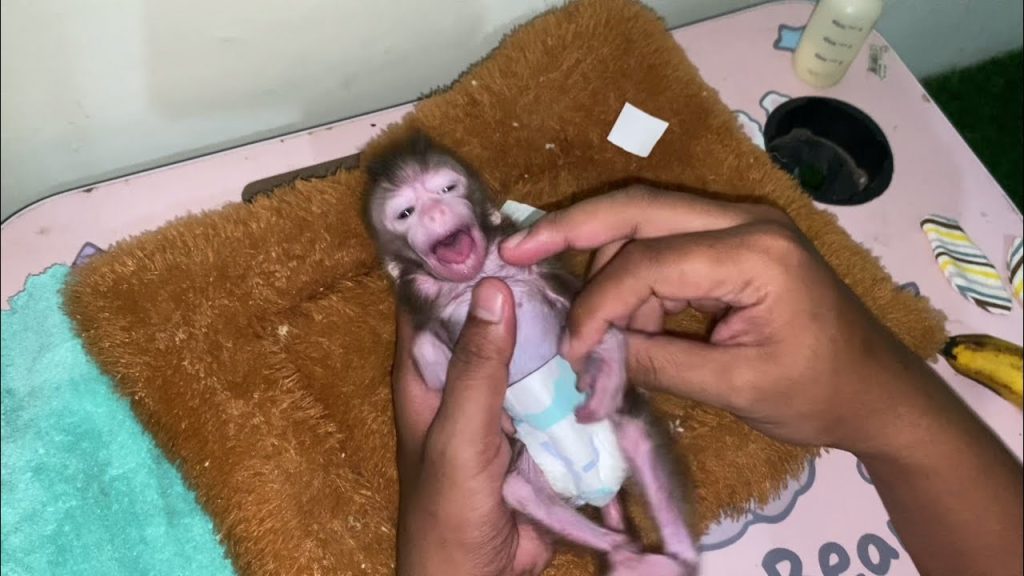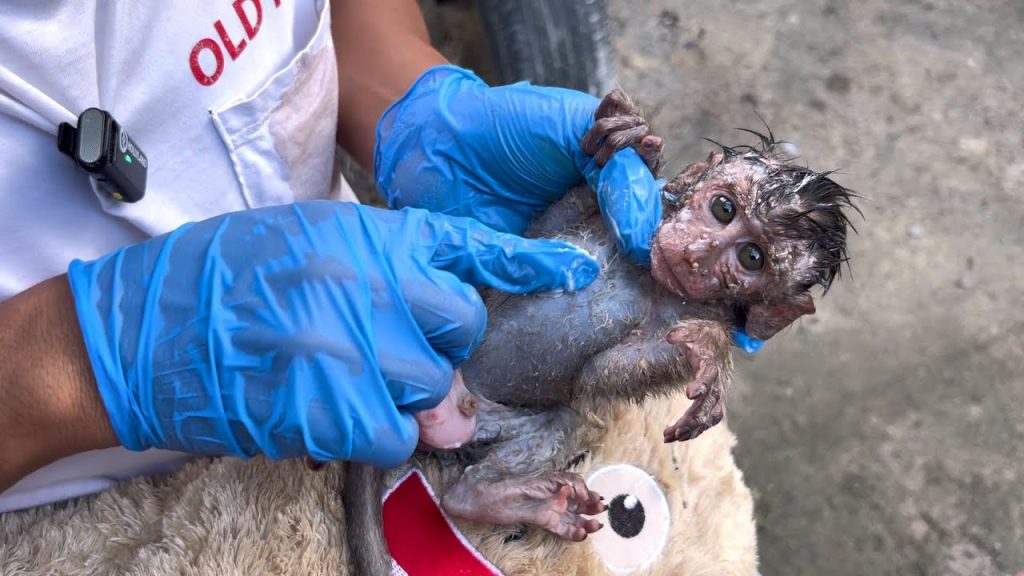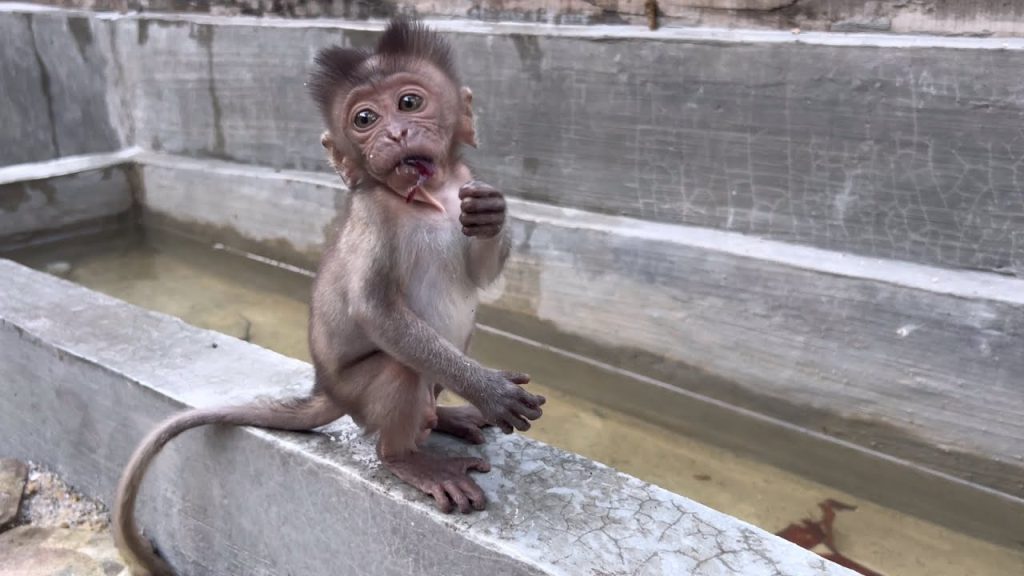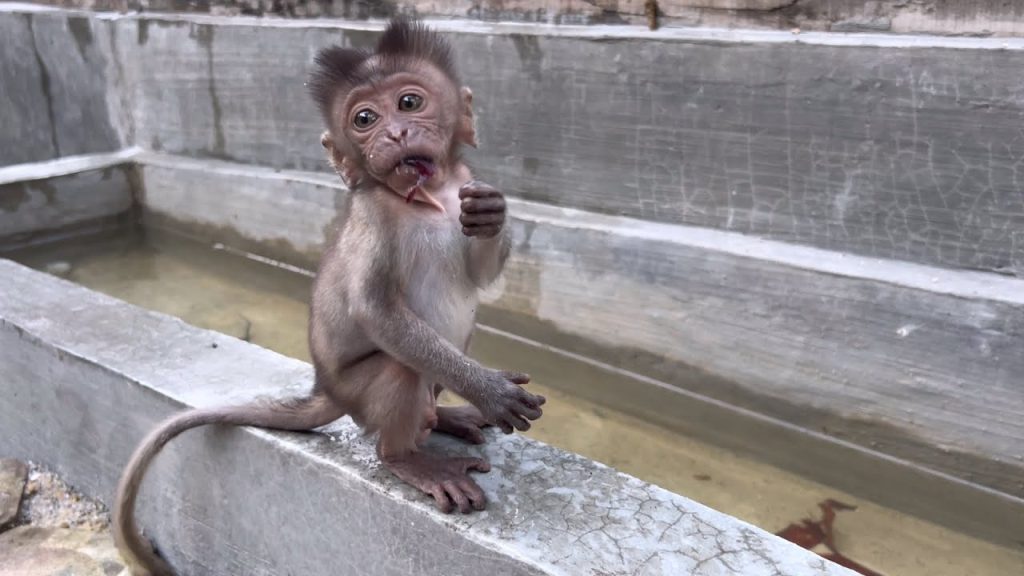
Even after four days of careful glove-use, the very small baby monkey still shows anger, confusion, and defensive behavior. And this is not surprising at all when one understands how extremely young primates form impressions, rely on touch, and interpret safety. Baby monkeys, even older ones, depend on physical contact more than almost any other sensory signal. In the wild, the first security they feel is not the taste of food or the sound of vocal calls — the very first foundation of trust is skin contact with mother’s warm fur and mother’s heartbeat. So when that natural anchor is removed and replaced by a strange human hand wearing synthetic gloves, the emotional reaction can be fear or anger. Even if the gloves are used for a good reason — hygiene, safety, disease prevention — the infant does not know the protecting intention, it only knows unfamiliar sensation.
And this monkey, very tiny, probably still in that early stage where the nervous system is not fully stable, is experiencing the gloves not as a safety device, but as a threat. Four days is not a long time in the emotional calendar of a newborn primate. Their trauma recovery timelines are slower than humans think. A baby monkey can stay in fear for weeks if the initial separation shock was big. If this baby was rescued from a stressful environment — a market, a poacher, a cage — then the “baseline trust” is already broken before the gloves are even introduced.
What matters now is not rushing the healing process but designing controlled exposure, positive reinforcement, and gradual sensory familiarity. Instead of always approaching the baby with gloves immediately, allow the gloves to simply sit in the same room so the smell turns normal. A cloth that carries the caregiver’s normal scent can be wrapped over the glove to slowly bridge the psychological gap. Feeding while wearing the gloves can convert the glove into an association of food rather than capture.
Anger in a baby monkey is a communication signal, not “bad personality.” It is fear-language. If the baby is shouting, biting, or gripping aggressively, it is expressing a deep memory of threat, not rebellion. The cure is repetition of safe contact, careful timing, and consistency. Eventually, with patient daily routines, the gloves will no longer be “alien hands,” but simply part of the caregiver’s presence — and the anger will loosen into trust.


